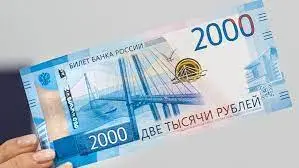Russian Ruble Dips Below 100 to the Dollar as Interest Rate
Boost Effect Wanes
The Russian ruble briefly dipped to a significant milestone on Tuesday, reaching an exchange rate of
100 to the dollar for the first time since mid-August.
Back then, concerns
about the impact of wartime events on the economy had prompted the central bank to hold an emergency
meeting, during which it sharply increased interest rates to 12 percent.
This latest drop in the ruble's
value occurred roughly two and a half weeks after the central bank announced its decision to raise
the benchmark interest rate once more, this time to 13 percent. The rationale behind this move was
to combat rising inflation, primarily driven by demand outpacing production capabilities. Higher
interest rates can make holding ruble-denominated assets more appealing to investors.
Over the past few months, the ruble
has generally hovered within the range of 95 to 99 rubles to a dollar, significantly weaker compared
to the beginning of the year. This weakening reflects the financial instability caused by President
Vladimir V. Putin's war in Ukraine. Factors such as increased military spending, labor shortages,
and a deteriorating trade balance have raised concerns about the Russian economy's health and the
sustainability of its war-related expenditures.
In September, when the central bank raised interest rates again, it attributed the ruble's decline to
various "external restrictions" on trade with Russia. These restrictions have driven up the cost of
imports while weakening demand for Russian exports.
Since Russia's invasion of Ukraine in February of the previous year, the ruble has experienced a
rollercoaster ride, at one point weakening to 135 per dollar in March 2022 due to Western sanctions
and capital flight. However, it later recovered as oil prices surged and imports declined.
Nonetheless, the ruble faced another setback in August, losing approximately 25 percent of its value
against the dollar since the start of the year. In response, the central bank convened an emergency
meeting and aggressively raised the benchmark interest rate.
Kremlin spokesperson Dmitri S. Peskov downplayed concerns about the ruble's recent dip against the
dollar, emphasizing the need to reduce dependency on the dollar and embrace the ruble as a stable
currency.
During a discussion about the federal budget last month, President Putin asserted that the country's
economic situation is generally stable and balanced. He expressed optimism about the potential for
gross domestic product (GDP) growth, projecting a range of 2.5 to 2.8 percent for 2023, although the
central bank's growth forecast was more conservative, ranging from 1.5 to 2.5 percent for the year.
